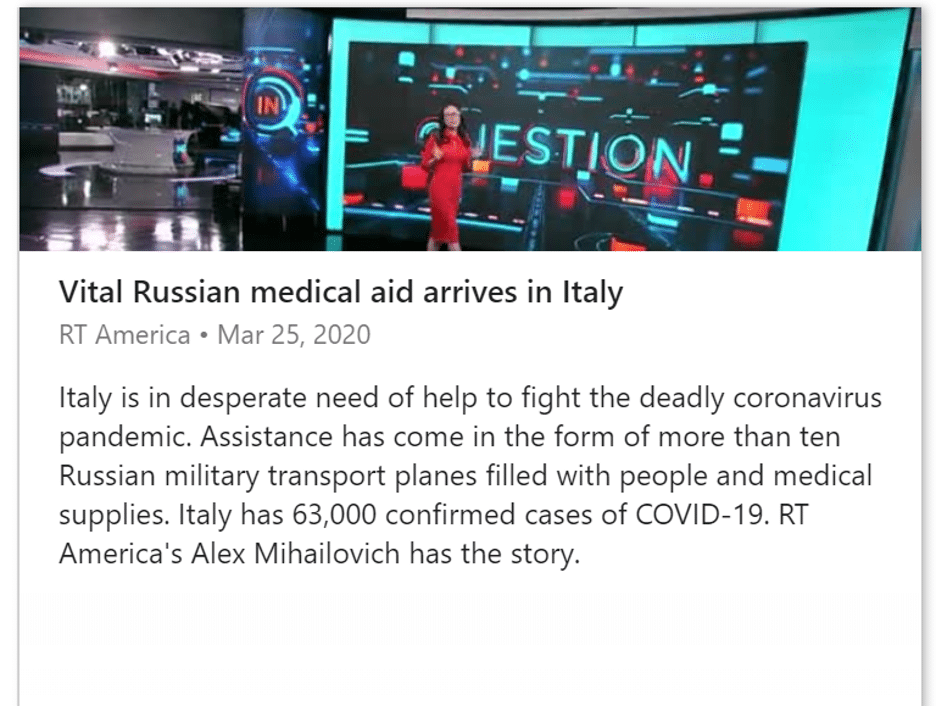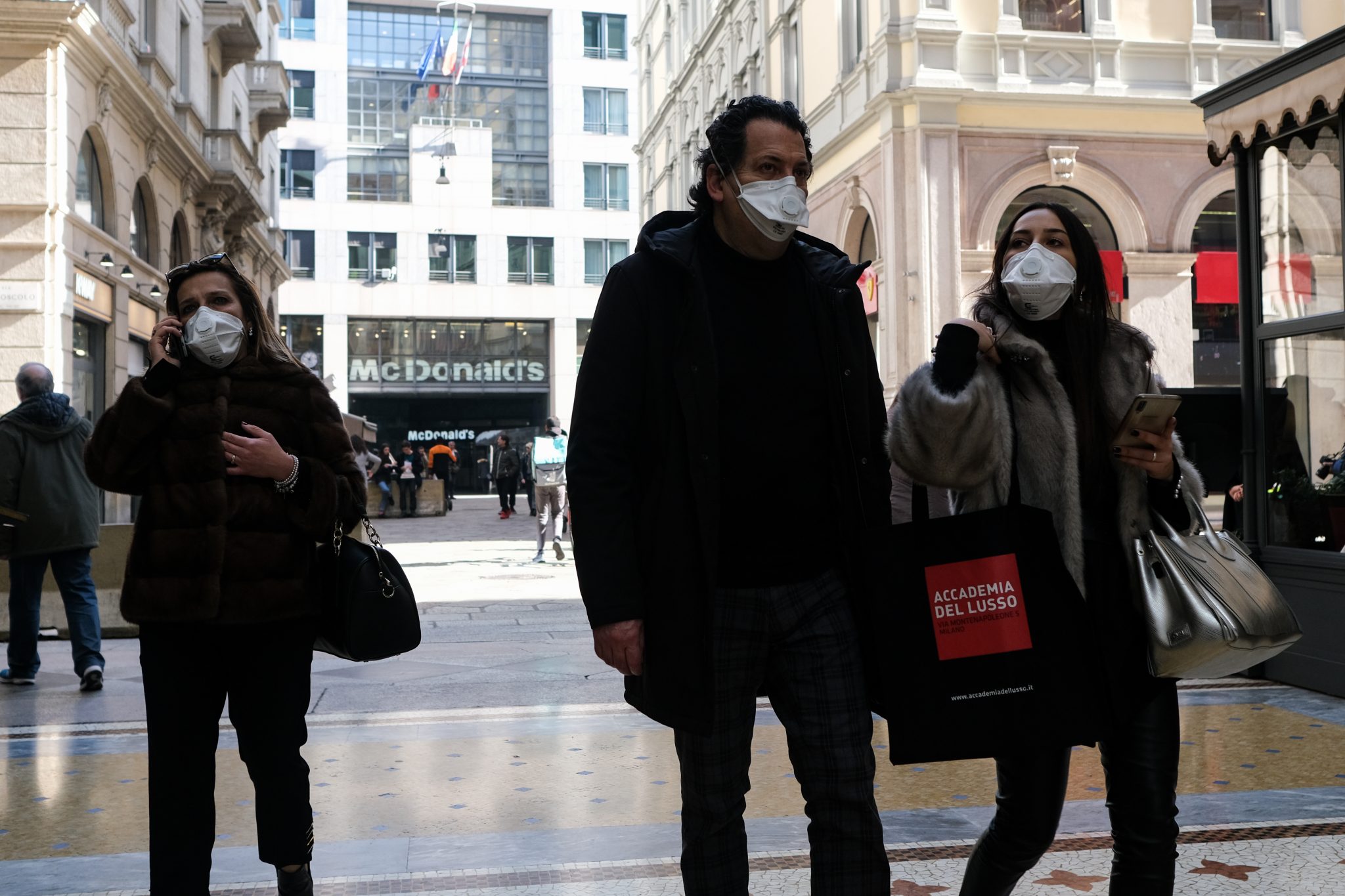Since February of this year, as the coronavirus pandemic has swept the globe, China has been engaging in what media commentators are calling “mask diplomacy”—the sale or donation of medical supplies to countries battling the terrible disease. Russia seemed poised to do the same. On March 22, the Russian Ministry of Defense announced it would be sending medical specialists and supplies to hard-hit Italy as aid from the Russian people. As is often the case with the Russian government’s goodwill campaigns, Russia’s motives were not entirely altruistic. Russia’s aid mission to Italy was in reality a self-interested attempt to use such donations as fodder for information operations to exacerbate existing divisions within the European Union and NATO, portraying the two alliances as weak and uncaring about Italians’ suffering.
At first, things seemed to turn out quite well for the Kremlin. Far-right Italian Foreign Minister Luigi di Maio hailed the aid, and front-page headlines in La Repubblica proclaimed that the crisis had “redrawn the map of Italy’s allies.” Russia had previously invested in its relationship with Italy, going so far as to attempt to surreptitiously fund a major Italian political party, and it considers the country a weak point both in NATO and in the EU. All this in mind, Russia saw the contribution of medical gear—during a time when the country appeared to have its own coronavirus epidemic under control—as a sound investment.



Things went quickly downhill, however, when the supplies arrived in Italy. According to unnamed high level sources quoted by La Stampa, 80 percent of the supplies were “useless,” and the shipments were “merely a pretext” to place a Russian military presence in Italy. This reporting by Coda Story and La Stampa caused a furious backlash in Russia, with Russian General Igor Konashenkov going so far as to issue a threatening statement against La Stampa journalist Jacopo Iacoboni on Facebook, quoting in Latin from Ecclesiastes 10:8, “He that diggeth a pit shall fall into it.”
This bluster highlights the self-interested aspects of the aid mission, which Sergio Germani of Gino Germani Institute for Social Sciences and Strategic Studies in Rome called “a half-propaganda, half-intelligence operation” meant to “to strengthen anti-EU feelings and to reinforce the impression that the EU is crumbling, to make propaganda gains and gather intelligence at the heart of NATO.” As ASD’s Hamilton 2.0 tracker has illustrated, Russian state media has made much of this aid to Italy, emphasizing, for example, local pro-Russia politicians’ praise for the shipments and criticism of the EU and NATO as unwilling or unable to provide aid to one of their own member states.
After Western media and experts began discussing the purpose of the aid, Russian state media’s tone switched to furious recrimination, again highlighting pro-Russian politicians like Italian Prime Minister Giuseppe Conte, who called the reporting on the issue offensive, and the author of an RT op-ed accused the journalists reporting on the issue of being part of an EU-funded conspiracy.
Russia may continue to troll the West with these small shipments of aid, as it has done recently with the United States. Low-cost, high-reward information operations that exacerbate divisions in the EU and NATO have played a consistent role in Russia’s authoritarian playbook, and Russia’s response to the coronavirus pandemic crisis, and its ultimate goals, to drive a wedge between EU and NATO member states and aggravate existing divisions in the alliances, remain the same.
The views expressed in GMF publications and commentary are the views of the author alone.





